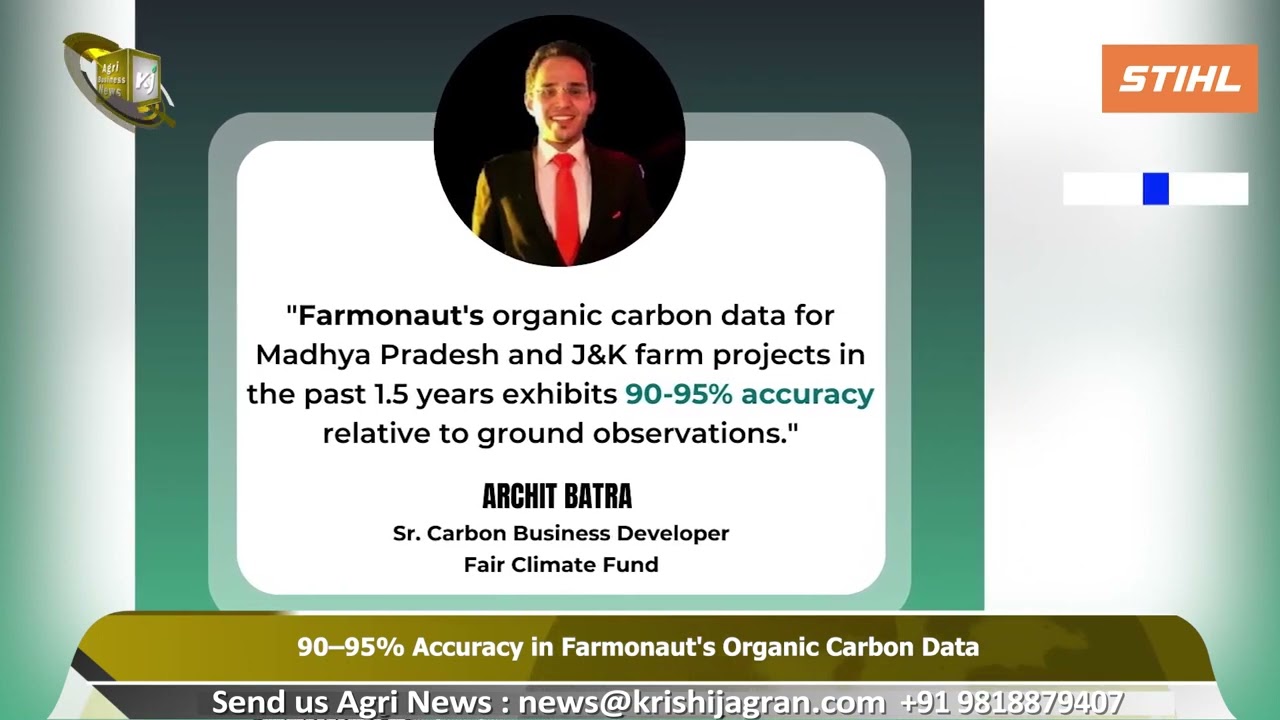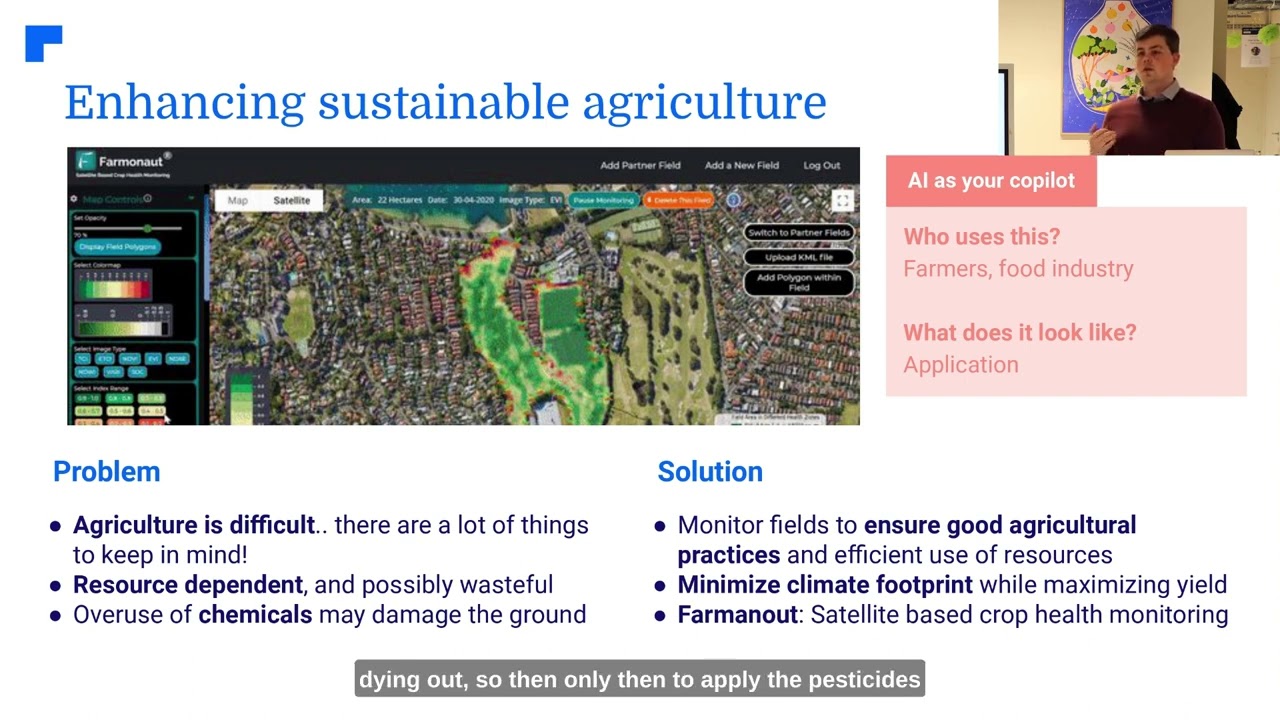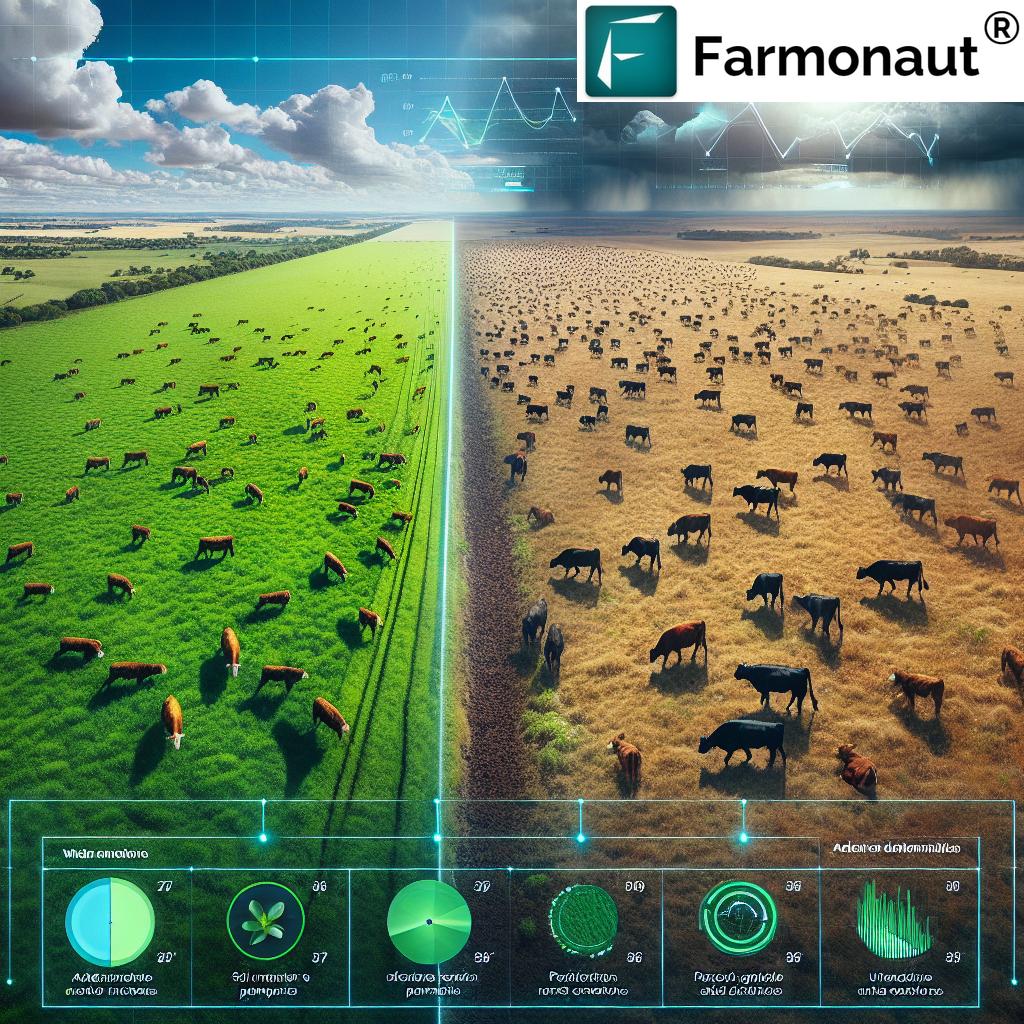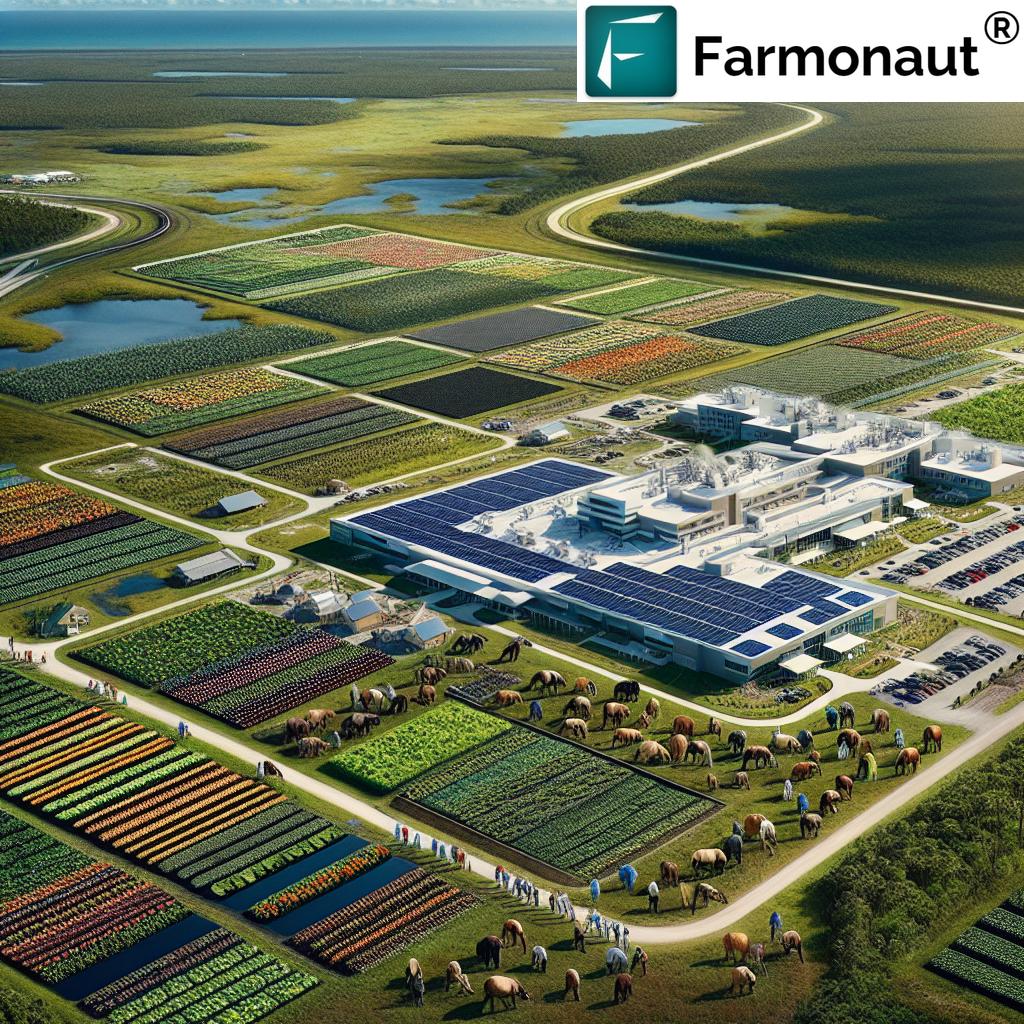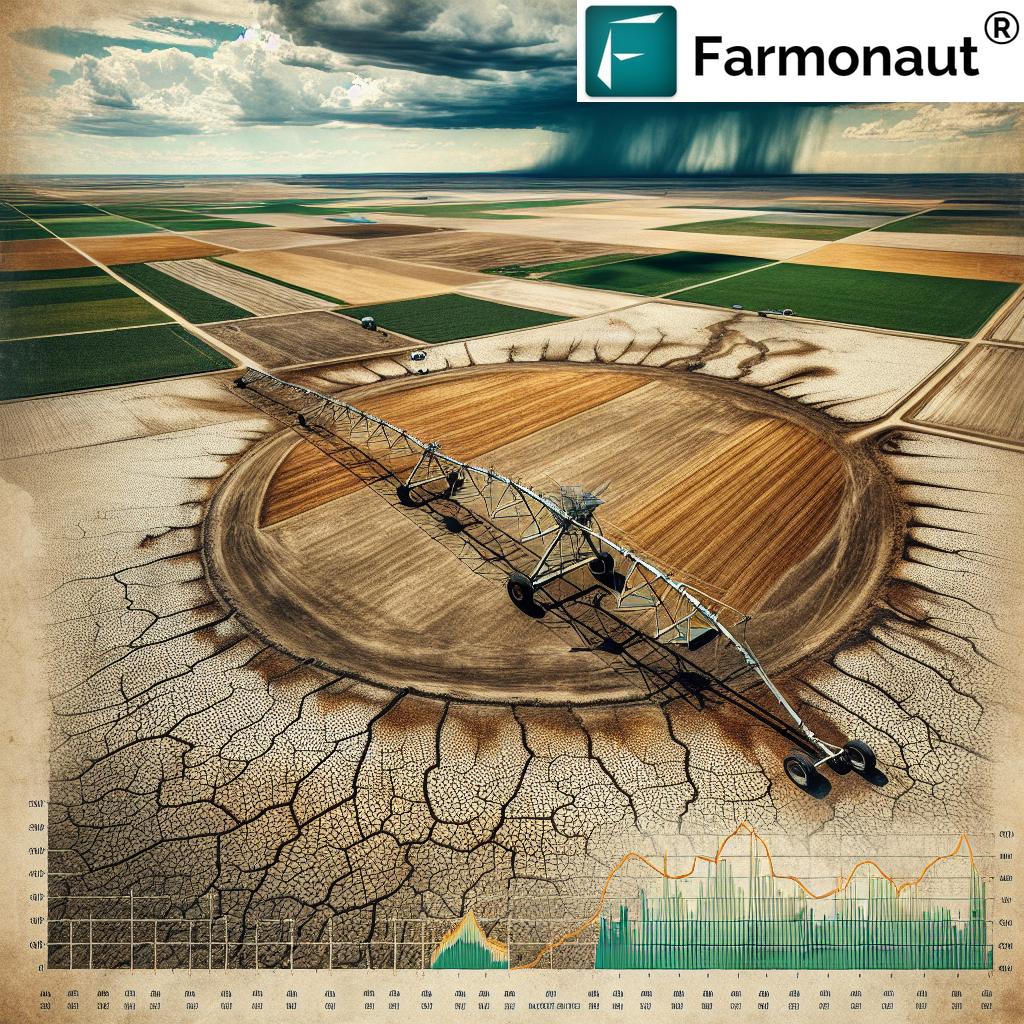Idaho Farmers Embrace Sustainable Soil Health Practices: Boosting Crops and Cutting Emissions
“Idaho farmers implementing sustainable soil practices have seen up to 20% increase in crop yields while reducing emissions.”
As we delve into the world of sustainable agriculture in Idaho, we’re witnessing a remarkable transformation in farming practices. The farmers of the Gem State are at the forefront of a revolution that’s not only boosting crop yields but also playing a crucial role in combating climate change. In this comprehensive exploration, we’ll uncover how Idaho’s agricultural community is leveraging cutting-edge soil health practices to create a more sustainable and productive future for farming.
The Soil Health Revolution in Idaho
In the heart of America’s agricultural heartland, Idaho farmers are embracing a new era of farming that prioritizes soil health as the foundation for sustainable agriculture. This shift is not just about improving yields; it’s about nurturing the very essence of our food production system – the soil beneath our feet.
As the harvest season winds down, farmers across Moscow, Idaho, and beyond are turning their attention to an often-overlooked aspect of agriculture: soil health testing. This critical practice is becoming increasingly popular among forward-thinking growers who understand that the key to long-term agricultural success lies in the quality of their soil.

The Importance of Soil Health Testing
Soil health testing is more than just a trendy practice; it’s a fundamental tool for sustainable farming. By analyzing their soil, farmers can:
- Identify nutrient levels with precision
- Determine the exact fertilizers needed for the upcoming growing season
- Implement strategies to maintain and improve overall soil vitality
This data-driven approach allows farmers to make informed decisions that benefit both their crops and the environment. It’s a win-win situation that’s gaining traction across Idaho’s agricultural landscape.
Sustainable Farming Practices: A Closer Look
The shift towards sustainable farming practices in Idaho encompasses a wide range of techniques and strategies. Let’s explore some of the key areas where farmers are making significant changes:
1. Nutrient-Dense Soil Management
One of the primary goals of sustainable soil health practices is to create and maintain nutrient-dense soils. This involves:
- Precise application of organic and inorganic fertilizers
- Incorporation of crop residues to enhance soil organic matter
- Use of compost and other natural soil amendments
By focusing on nutrient-dense soil management, farmers can reduce their reliance on synthetic fertilizers while improving the overall health of their soil ecosystem.
2. Water Conservation in Farming
In a state where water resources are precious, Idaho farmers are adopting innovative water conservation techniques:
- Drip irrigation systems for targeted water delivery
- Soil moisture sensors to optimize irrigation schedules
- Conservation tillage to reduce water evaporation
These practices not only conserve water but also contribute to better soil structure and reduced erosion.
3. Cover Crop Benefits
Cover crops are becoming increasingly popular among Idaho farmers due to their numerous benefits:
- Preventing soil erosion during off-seasons
- Enhancing soil organic matter content
- Suppressing weeds naturally
- Improving soil structure and water retention
The use of cover crops is a prime example of how sustainable practices can simultaneously protect the environment and improve farm productivity.
Optimizing Fertilizer Use: A Key to Sustainability
While fertilizers are essential for maintaining soil fertility, their overuse can lead to significant environmental issues. Idaho farmers are tackling this challenge head-on by optimizing fertilizer use through:
- Precision agriculture techniques
- Soil testing to determine exact nutrient needs
- Variable rate application technologies
By fine-tuning their fertilizer application, farmers are not only reducing costs but also minimizing the environmental impact of their operations.
“A groundbreaking project in Idaho is studying soil carbon levels across 10,000 acres to optimize climate-smart agriculture techniques.”
Climate-Smart Agriculture: The Future of Farming
Climate-smart agriculture is more than just a buzzword in Idaho; it’s becoming a way of life for many farmers. This approach focuses on:
- Reducing greenhouse gas emissions from agricultural activities
- Enhancing carbon sequestration in soils
- Improving resilience to climate change impacts
Through these practices, Idaho farmers are not only adapting to a changing climate but actively contributing to its mitigation.

The Role of Organic Matter in Soil Health
Increasing organic matter in soil is a cornerstone of sustainable farming practices. Idaho farmers are achieving this through:
- Incorporation of crop residues
- Application of compost and manure
- Minimal tillage practices
Higher organic matter content leads to improved soil structure, better water retention, and increased nutrient availability for crops.
Crop Rotation Techniques: Diversity for Sustainability
Crop rotation is a time-tested practice that’s gaining renewed importance in sustainable agriculture. Idaho farmers are implementing diverse crop rotation strategies to:
- Break pest and disease cycles
- Improve soil structure
- Enhance nutrient cycling
- Reduce reliance on synthetic inputs
By carefully planning their crop rotations, farmers are creating more resilient and productive agricultural systems.
The University of Idaho’s Groundbreaking Research
At the forefront of this agricultural revolution is the University of Idaho, which has launched a pioneering project supported by a historic grant of over $50 million. This research initiative aims to:
- Study soil health across diverse agricultural landscapes
- Develop strategies for reducing greenhouse gas emissions in agriculture
- Identify best practices for achieving nutrient-dense soils
The project is currently in its monitoring phase, gathering crucial data on soil carbon levels throughout Idaho. This comprehensive approach will provide invaluable insights for farmers and policymakers alike.
Innovative Cropping Systems: Pushing the Boundaries
As part of their research, the University of Idaho team is exploring innovative cropping systems that could revolutionize farming in the state. These include:
- Reduced nitrogen fertilization techniques
- Implementation of diverse cover crop mixes
- Intercropping and multi-cropping strategies
These experimental approaches have the potential to significantly reduce the environmental impact of farming while maintaining or even improving crop yields.
The Future of Eco-Friendly Food Labeling
As sustainable farming practices gain traction, we may soon see a new era of eco-friendly food labeling. Consumers could encounter products labeled as “grown in a progressive climate-smart way,” reflecting the commitment to sustainable agriculture. This trend could:
- Increase consumer awareness of sustainable farming practices
- Create market incentives for farmers to adopt environmentally friendly methods
- Foster a stronger connection between consumers and the food production process
Such labeling could revolutionize the way we think about and value our food, creating a more sustainable and transparent food system.
The Role of Technology in Sustainable Agriculture
Technology plays a crucial role in the implementation of sustainable soil health practices. Innovative solutions like those offered by Farmonaut are empowering farmers with data-driven insights to make informed decisions about their soil management strategies.
Farmonaut’s satellite-based crop health monitoring system provides real-time data on vegetation health, soil moisture levels, and other critical metrics. This technology enables farmers to:
- Optimize irrigation practices
- Fine-tune fertilizer application
- Monitor crop health remotely
- Make data-driven decisions for sustainable farm management
By leveraging these advanced tools, Idaho farmers can implement precision agriculture techniques that maximize efficiency while minimizing environmental impact.
Challenges and Opportunities in Sustainable Farming
While the benefits of sustainable soil health practices are clear, farmers face several challenges in their implementation:
- Initial costs of transitioning to new practices
- Learning curve associated with new technologies and techniques
- Balancing short-term productivity with long-term sustainability goals
However, these challenges also present opportunities for innovation and collaboration within the agricultural community. By working together and sharing knowledge, Idaho farmers can overcome these obstacles and create a more sustainable future for agriculture.
The Economic Case for Sustainable Farming
Adopting sustainable soil health practices isn’t just good for the environment; it can also be economically beneficial for farmers. Some of the financial advantages include:
- Reduced input costs through optimized resource use
- Improved crop resilience leading to more stable yields
- Potential premium prices for sustainably grown products
- Long-term improvements in soil productivity
As more farmers experience these benefits, the adoption of sustainable practices is likely to accelerate across Idaho and beyond.
The Role of Policy in Promoting Sustainable Agriculture
Government policies play a crucial role in supporting the transition to sustainable farming practices. In Idaho, policymakers are exploring various initiatives to encourage sustainable agriculture, including:
- Financial incentives for adopting soil health practices
- Research funding for sustainable agriculture projects
- Educational programs to support farmers in transitioning to new methods
These policy measures are essential for creating an environment that supports and encourages sustainable farming practices across the state.
Comparing Traditional and Sustainable Farming Practices
To better understand the impact of sustainable soil health practices, let’s compare them with traditional farming methods:
| Practice Area | Traditional Method | Sustainable Method | Estimated Benefits |
|---|---|---|---|
| Nutrient Management | Blanket application of fertilizers | Precision fertilization based on soil tests | 20-30% reduction in fertilizer use; 10-15% yield increase |
| Water Conservation | Flood irrigation | Drip irrigation and soil moisture sensors | 30-50% water savings; 15-20% yield increase |
| Cover Cropping | Bare fallow periods | Year-round soil coverage with diverse cover crops | 50-75% reduction in soil erosion; 10-20% increase in soil organic matter |
| Crop Rotation | Limited rotation or monoculture | Diverse, multi-year crop rotations | 25-35% reduction in pest pressure; 10-15% yield increase across rotation |
| Tillage | Intensive tillage | Conservation tillage or no-till | 60-80% reduction in fuel use; 20-30% increase in soil moisture retention |
This comparison clearly illustrates the significant benefits that sustainable farming practices can offer in terms of resource conservation, yield improvements, and environmental protection.
The Global Impact of Sustainable Farming
The sustainable farming practices being adopted in Idaho have implications that extend far beyond the state’s borders. As agriculture is a significant contributor to global greenhouse gas emissions, the shift towards sustainable practices can have a substantial impact on climate change mitigation efforts worldwide.
Some of the global benefits of sustainable farming include:
- Reduced carbon emissions from agricultural activities
- Increased carbon sequestration in soils
- Improved food security through more resilient farming systems
- Conservation of biodiversity and natural resources
By leading the way in sustainable agriculture, Idaho farmers are contributing to a global movement towards more environmentally friendly food production systems.
The Future of Farming in Idaho
As we look to the future, it’s clear that sustainable soil health practices will play an increasingly important role in Idaho’s agricultural landscape. The combination of innovative research, technological advancements, and farmer ingenuity is paving the way for a more sustainable and productive agricultural sector.
Some key trends we can expect to see in the coming years include:
- Wider adoption of precision agriculture technologies
- Increased focus on soil health as a key indicator of farm productivity
- Greater integration of sustainable practices into mainstream farming operations
- Development of new crop varieties tailored for sustainable farming systems
These developments promise to transform Idaho’s agricultural sector, making it more resilient, efficient, and environmentally friendly.
Conclusion: A Sustainable Future for Idaho Agriculture
The embrace of sustainable soil health practices by Idaho farmers marks a significant turning point in the state’s agricultural history. By focusing on soil health, water conservation, and innovative cropping systems, farmers are not only boosting their crop yields but also playing a crucial role in combating climate change.
The groundbreaking research being conducted at the University of Idaho, coupled with the adoption of advanced technologies like those offered by Farmonaut, is paving the way for a more sustainable and productive agricultural future. As these practices continue to evolve and gain widespread adoption, we can look forward to a future where Idaho’s farms are not only more productive but also more resilient and environmentally friendly.
The journey towards sustainable agriculture is ongoing, and there are still challenges to overcome. However, the commitment and innovation demonstrated by Idaho’s farming community give us reason to be optimistic about the future of agriculture in the state and beyond.
FAQs
- What is soil health testing?
Soil health testing is a comprehensive analysis of soil properties, including nutrient levels, organic matter content, and microbial activity. It helps farmers understand the current state of their soil and make informed decisions about management practices. - How do cover crops benefit soil health?
Cover crops improve soil health by preventing erosion, increasing organic matter, suppressing weeds, and enhancing soil structure. They also help in nutrient cycling and can break pest and disease cycles. - What is precision agriculture?
Precision agriculture is a farming management concept that uses technology to observe, measure, and respond to variability in crops. It includes practices like GPS-guided machinery, variable rate fertilizer application, and satellite-based crop monitoring. - How does sustainable farming help combat climate change?
Sustainable farming practices reduce greenhouse gas emissions through efficient resource use, increase carbon sequestration in soils, and improve overall farm resilience to climate impacts. - What role does technology play in sustainable agriculture?
Technology, such as satellite imaging, AI-powered advisory systems, and precision application tools, helps farmers implement sustainable practices more effectively by providing data-driven insights and improving resource efficiency.
For more information on how technology can support sustainable farming practices, visit Farmonaut’s API or check out the API Developer Docs.



